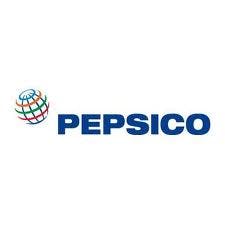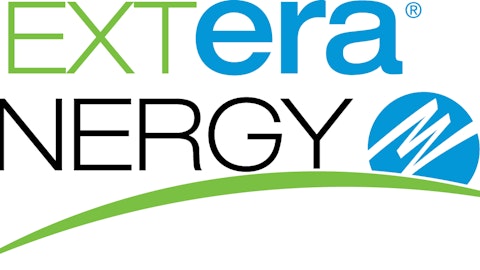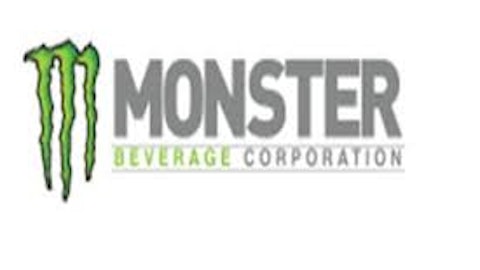It wasn’t long ago that few had heard of Sabra Dipping Company, half of which is owned by PepsiCo, Inc. (NYSE:PEP). Hummus is a spread/dip that is low in fat, high in protein, and even higher in market noise level because of increasing nutrition awareness. But aside from being a healthy snack, many know about it because it gives itself away for free. Pepsi is a global snack ruler because of it’s marketing power, and no marketing is more powerful than sampling.
Dipping in
Many of us enjoy snacking, and enjoy it even more when there’s no cash involved. Sabra gave away 10,000 packages (2 ounce samples) in U.S. cities. It’s a marketing technique that should be used more often but is generally risky for smaller companies. For PepsiCo, Inc. (NYSE:PEP) it’s nothing because its Frito-Lay division operates at a margin around 34%.
Estimated sales of Sabra eclipsed $315 million last year. It is the largest maker of hummus in the country, but competition in the healthy snack world is intense. Refrigerated flavored spreads, the majority of which are types of hummus, brought in $530 million in 2012, an 11% jump from the previous year.
PepsiCo has mastered sampling. Take for example the team up with other companies such as Yum! Brands, Inc. (NYSE:YUM). If you’ve been to a baseball game recently, you’ve probably heard of the co-op withTaco Bell and the infamous “Doritos Locos Tacos” campaign. Now, the casual investor may look past PepsiCo, Inc. (NYSE:PEP) because it ranks second in the cola department, but a little research shows it generates 61% of its $8.8 billion in free cash flow from Frito-Lay and other food brands. The same division generates 52% of revenue. Sampling new snacks and more global brand exposure should help PepsiCo, Inc. (NYSE:PEP) continue its 41 consecutive years of dividend increases.
Sampling works even better in retail stores such as Costco Wholesale Corporation (NASDAQ:COST) and Whole Foods Market, Inc. (NASDAQ:WFM). These two are more than grocery stores–they’re food destinations. They use sampling to get their quality products into shopping carts.
No free lunch
Three years ago, a Minnesota man was arrested for taking too many free samples. So an investor may wonder if companies lose significant money on samples. And the answer would be no, generally these types of businesses aren’t worried about the product they give away.
Costco Wholesale Corporation (NASDAQ:COST) is a superb operation because of its membership fees. Recent quarterly figures show membership fees accounting for $531 million, a 12% advancement. This may seem small, because of its $24.1 billion top line, but membership fees are pure profit. Keep in mind, if people are paying the fee to shop there, they will continue to do so in an effort to make their membership worth the cost.
Samples aren’t the only thing Costco Wholesale Corporation (NASDAQ:COST) gives, its 5 year dividend growth is more than 60%. Costco is the premium retailer – its membership is expensive and so does is the stock, which trades at 21 times forward earnings. But remember, Costco Wholesale Corporation (NASDAQ:COST) has earned that multiple as 86% of its membership renews year after year. Additionally revenue per square foot has increased 7% since 2006, some of that is due to effective sampling.
Hooked on health
Whole Foods has revolutionized the grocer industry with a simply defined yet monumental achievement, making supermarkets more profitable. People joke about how some products in the store are overpriced, but consumers have developed a sense of urgency when it comes to nutrition. They want the best products and are willing to pay a premium for them, just as some investors are willing to pay 36 times Whole Foods earnings.
It has made an effort to dispel the notion that shopping at the stores takes a “whole paycheck.” However, skeptics continue to focus on a bad pricing image. But the point is, Whole Foods is a store that sells a ton of premium products, because of sampling. It even advertises the activity online under the heading of Saturday Sampling.
As awareness evolves, so will spending on natural and organic foods, which totaled $26.7 billion in 2010. Whole Foods represents a good chunk of this market. Many analysts expect revenue to grow at a 10% clip over the next decade.
Line and sinker
As you know, people are susceptible to emotions and are impulsive. Samples bait consumers, which works in favor of investors. So the next time you’re in one of these stores, feel free to accept the food. Just make sure you pick up shares of these well run businesses.
Kyle Vaughan has no position in any stocks mentioned. The Motley Fool recommends Costco Wholesale, PepsiCo, and Whole Foods Market. The Motley Fool owns shares of Costco Wholesale, PepsiCo, and Whole Foods Market.
The article Stock Up on Samplers originally appeared on Fool.com.
Copyright © 1995 – 2013 The Motley Fool, LLC. All rights reserved. The Motley Fool has a disclosure policy.




